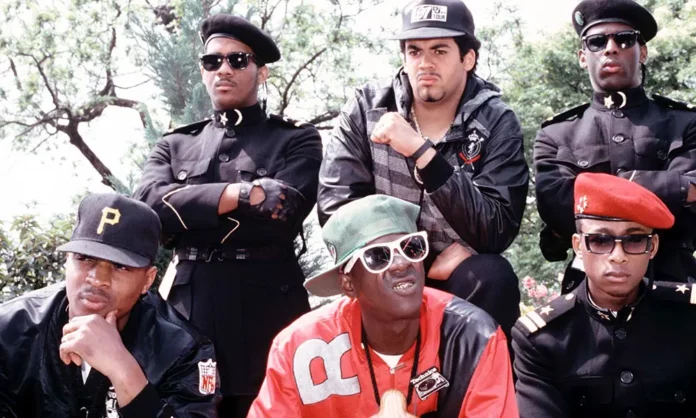
Highlight Reel
- Federal judge orders the estate of Dr. Khalid Muhammad to show cause by June 20 or risk dismissal of its high-profile lawsuit against 2Pac, Public Enemy, Ice Cube and others.
- The lawsuit accuses music industry giants of profiting from unlicensed samples of Muhammad’s speeches—an icon of the Nation of Islam and Black Panther movement—seeking $5 million per track.
- This case could set new standards for copyright and compensation in hip-hop, testing whether Black activist voices will finally receive overdue credit.
By Samuel Lopez – USA Herald
LOS ANGELES, CA – The explosive lawsuit brought by the estate of Dr. Khalid Muhammad—a firebrand orator for the Nation of Islam and Black Panther movement—has reached a critical crossroads in federal court, with a judge issuing a stern warning: respond or face dismissal.
On June 6, 2025, U.S. District Judge Michael W. Fitzgerald issued an Order to Show Cause, requiring the plaintiffs to prove by June 20, 2025 why their case should not be dismissed for lack of prosecution. The case, Estate of K. Muhammad, et al. v. Public Enemy, et al., alleges that some of the biggest names in hip-hop, including 2Pac (the estate of Tupac Shakur), Public Enemy, and Ice Cube, illegally sampled Dr. Muhammad’s speeches and likeness in their music—without compensation or credit.
The Court’s Ultimatum
According to the order, the plaintiffs (Muhammad’s estate) must submit proofs of service showing that all defendants have been served with the lawsuit by June 20, or risk having their landmark case thrown out. Alternatively, if defendants respond to the complaint or if the parties agree to an extension, the action may continue. Should any defendants fail to respond after proper service, the estate must also move for default entry. Failure to act means dismissal.
This legal crossroads underscores the procedural rigor of the federal courts, reminding even the highest-profile litigants that strict compliance with service and response deadlines is required to advance claims.
“Failure to respond to this Order to Show Cause by June 20, 2025, will result in dismissal of this action,” Judge Fitzgerald wrote.
Lawsuit Background: Fighting for Credit and Compensation
The estate’s lawsuit seeks $5 million per track, plus legal fees and an injunction, over what it claims is the unlicensed use of Dr. Khalid Muhammad’s voice in legendary tracks—including Public Enemy’s “Night of the Living Baseheads” and songs by Tupac Shakur and D’Angelo. The estate is represented by civil rights attorney Malik Zulu Shabazz.
“These lawsuits are not an attack on Public Enemy, Tupac’s family or D’Angelo,” Shabazz stated. “They are about accountability. The record labels and music corporations exploited Khalid Muhammad’s voice for profit… Most of these artists don’t even own the rights to their own music. They’ve been exploited too.”
Muhammad’s family alleges his unique oratory and activism—celebrated in Black empowerment movements for decades—helped fuel the commercial and cultural impact of these tracks, while his legacy has gone uncompensated and uncredited.
The outcome of this case could have sweeping consequences for music copyright, artist rights, and the compensation of Black activists whose words and likenesses are embedded in pop culture. It raises difficult questions about authorship, credit, and equity in an industry long accused of exploitation.
Should the court ultimately side with Muhammad’s estate, it could force record labels and artists to revisit old contracts and clearances, potentially altering the soundscape of hip-hop itself.
What Happens Next?
With the clock ticking, all eyes are on whether the plaintiffs can deliver the required proof of service and keep the case alive. The legal process now moves from headlines to the procedural trenches, where compliance with court orders will determine whether Muhammad’s estate gets its day in court—or whether the case will quietly fade, dismissed for want of prosecution.
Case Citation and Status


